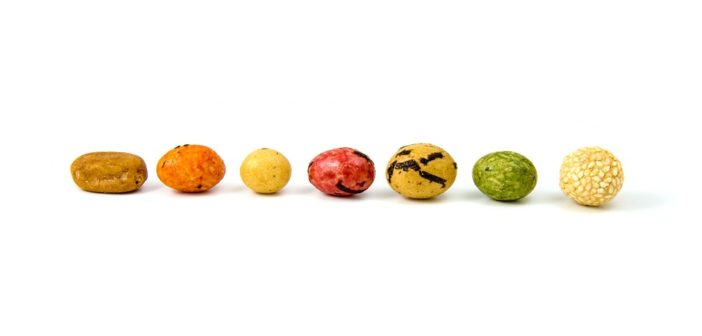In Chinese and many Asian cuisines, soy-based foods have been a staple for millennia. In recent years, controversy has arisen with the suggestion that soy can cause thyroid problems and lead to hormonal imbalances. I think it’s worth looking into this further, to decide whether we should or shouldn’t be eating soy.
Soy contains compounds called phytoestrogens; the concern has been that these weak plant-based estrogens could cause feminization and infertility in males, as well as early menses in girls. A recent review of the literature published last month indicates there is no data to indicate soy causes these effects. Over the last 60 years that infants worldwide have been fed soy-based formula, there has been no evidence of early sexual development or maturation.
Soy contains some substances called anti-nutrients. These inhibit the ability of the body to absorb vitamins or minerals; however, in live populations, this effect is not observed. Looking at infants fed soy-based formula, compared to those using cow milk formulas, there was no difference in growth rates, bone mineralization or iron status. (A friendly reminder that for infant nutrition, breast is best!)
Some studies propose that soy consumption can negatively impact the thyroid and cause goiters. This effect can generally be counteracted by ensuring enough iodine is consumed in the diet. It should be pointed out that most of this research is done on animals, which can’t always be applied to humans. Especially in the case of soy because there are some components that are metabolized, or processed differently in humans compared to animals. There are also studies that show no significant effect on the thyroid.
Farmers in China have been planting soy for at least 5,000 years, and when we look at human soy consumption in Asian countries, there is very little evidence of harm. Based on actual outcomes in the Asian population, we can conclude that soy is a health-promoting food, which can decrease the incidence of cardiovascular disease, reduces the risk of breast and prostate cancer, and helps women deal with menopausal symptoms, such as hot flashes and bone loss. But is this true for people in other parts of the world?
In my previous column about stinky tofu, I mentioned that some people can transform soy isoflavones into a chemical called equol. Generally Asians and vegetarians are more able to make this conversion. Interestingly some of the benefits of soy seem to come from this ability, which may be why studies are inconsistent; some say soy affects the thyroid, while others don’t.
A separate point to mention is that soy is a common allergen; therefore if someone is allergic to it, they must avoid it in their diet.
For me, the take-home message is to enjoy soy foods in moderation, as they’re an excellent source of plant-based protein, B vitamins, iron, calcium, zinc, and fiber. Based on the evidence, I don’t think there’s a need to fear the possibility of negative health outcomes. If you suffer from thyroid issues and are concerned, eating fermented soy products appears to mitigate any possible risks. I also think it’s best to choose soy foods that are closer to the forms that have been eaten traditionally; for this reason, I also try to select non-GMO soybeans when given a choice.

Got a question?
Dr. Melissa Rodriguez is a naturopathic
doctor and mother of two, who works at Beijing United Family Hospital. To find out more, check out her website at
www.drmelissarodriguez.com

Photo: Pixabay
This article appeared on p23 of beijingkids March 2018 issue.




